I know that lots of us are thinking about how to reduce energy consumption at home right now with the impending price hikes so I thought I’d share a few reminders on what you can do to reduce your own energy usage right now.

I got my email from Bulb over the weekend about the specifics of what my prices were going up to and I won’t lie, despite seeing all of the news about how bad it was going to be over the last few months still didn’t prepare me for the numbers in that email. Just seeing it written down made it really personal which I know makes no sense at all as I was fully expecting it to be this bad.
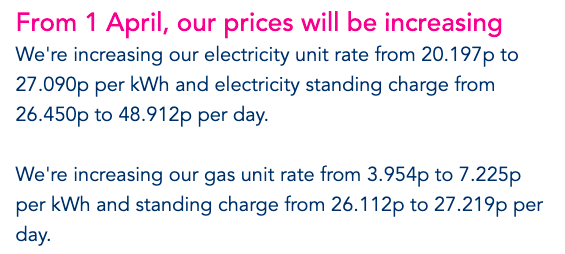
I’m dreading that first bill at the start of May which will show what the above numbers actually work out to in terms of how much I’ll be paying but I do know that there are plenty of opportunities I have to cut down on what we use in advance of the increase as we’ve definitely been a bit more relaxed with our focus on how much we’re using.
I’m going to be honest here and say that you will know about most of these tips – there’s nothing groundbreaking in there. But my thinking was that I know about them and don’t actively do them all then maybe you’re the same and could do with a reminder like me.
Get back into the habit of consciously thinking about what you use and I guarantee your energy consumption will reduce which in turn will make the impact of these new prices a little easier to manage.
10 ways to reduce energy consumption in your home!
At the moment (08.03.22) the advice is not to change energy suppliers but do keep an eye out for any changes in that guidance as that could be key to saving in the long run.
1. Turn the temperature down!
This is always my go-to tip when asked about how to reduce your energy bill because I’m always shocked at the temperature some people have their thermostat set to. Mine’s always between 18c and 20c depending on how cold it is outside and that’s not because I want to save money, that’s because that’s a comfortable temperature for us. Turn your thermostat down by just 1 degree and you can save between £80 and £100 a year based on old prices which is pretty significant in real money terms and i bet you won’t notice.
2. Use your timer.
I know that lots of people think that keeping the heating on a low temperature all saves you money in the long run but the experts at the Energy Saving Trust (well, I hope they’re experts – definitely more expert than most of us) say that that’s a myth and it’s not going to save you money.
Only having your heating on when you need it is the best way to save energy so master the timer function on your heating and use it. Mine is set to come on for a little bit in the morning so the house is warm when we wake up and then again in the evening so it’s warm then too. Any other time we have it on, we manually switch it on.
3. Do you need to heat the house overnight?
My heating is never on overnight and again, that’s not because I want to save money but because that’s what I’m comfortable with. I hate the air in the house with the heating on as it always feels stuffy to me so it’s on in the evening before bed and then again in the morning as we’re waking up and I genuinely never feel cold.
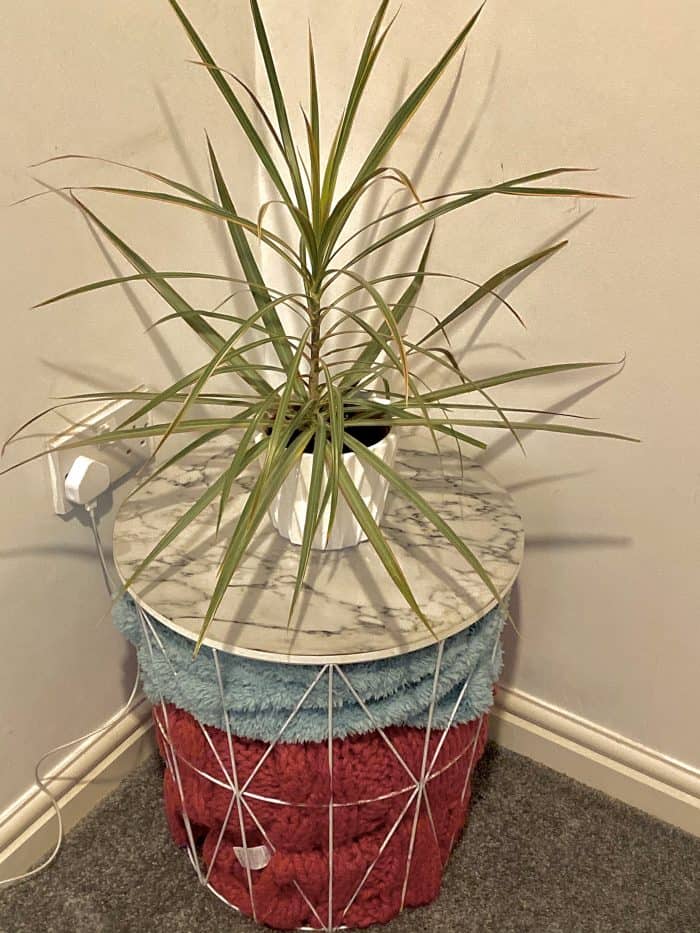
We have a blanket storage side table downstairs and blankets on all beds for extra snuggles when needed!
4. Can you turn any radiators off?
If you have any unused rooms then you could consider turning the radiators off in them and closing the door to keep the cold in there. Your boiler would still use the same amount of energy no matter many radiators it has to heat up but if you turn one or more radiators off then your boiler will work more efficiently and get the job done quicker. This means that the rest of the house will warm up sooner so the boiler switches off sooner therefore, you’ll save money because you’re using less gas.
I took out the radiator in my little entrance hall last year and now just keep the door shut which will have saved me money although I actually did it so I could build some shoe storage in the gap rather than to save money which I still haven’t got round to. I also have the radiator in my bedroom turned to half heat and Master Frugal has his switched off completely.
Just a couple of pointers if you’re switching off your radiators – be wary of damp if you’re in a house prone to damp as turning the heating off in a room could cause issues. And also, if you are turning them off then use the frost setting on the dial (a little snowflake) as that overrides the switch off it there’s a sudden frost and will stop pipes freezing.
5) Dust off your slow cooker.
It really is cheaper to use a slow cooker instead of your oven so wherever possible, use that for cooking your tea in. The costs I worked out a few years ago (is a slow cooker really cheaper than an oven) worked out at around 20p per meal cheaper so that’s going to be double that now practically. If you do use your oven then try and batch cook more than one meal at a time in there and pop one in the freezer for next time. And… Keep the door of the oven open after you’ve finished to heat the kitchen on a cold afternoon.
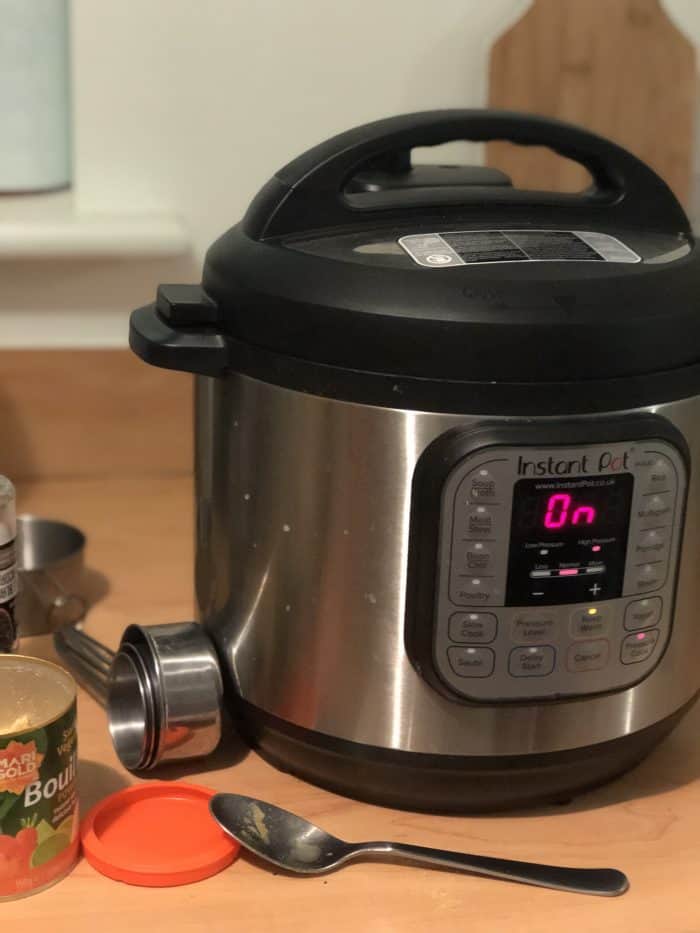
I’m currently using my Instant Pot as a slow cooker and loving it but even the pressure cook function on there saves a huge amount when compared to using the oven as it cooks so much quicker. Instant Pot claim it uses around 70% less energy than your oven to cook a simple dish like chilli as an example.
6. Only wash when you have a full load (and use a low temperature).
This is easy for me to say with teenagers rather than young kids but for a good few years now, I’ve only done my main washing on a weekend when I do three loads – whites, darks and colours. That’s because I’m lazy and hate washing but does also save me money as a washload costs around 36p an hour (pre price-hike) so using it daily for half loads will soon see costs mounting up. I do three big washes at 30 degrees (40 degrees for whites) so my use of the washing machine is really economical.
7. Have shorter showers!
We all know that showers are the way to go when it comes to reducing water consumption but a ten-minute shower could cost you around 24p (again, pre price-hike costs) so cutting your daily shower down to five minutes would save you 60p a week on those figures. And save you on water which will save you money there too if you’re on a water meter.
Also, just as an added bonus, swapping one bath a week to a shower will save you up to £11 a year.
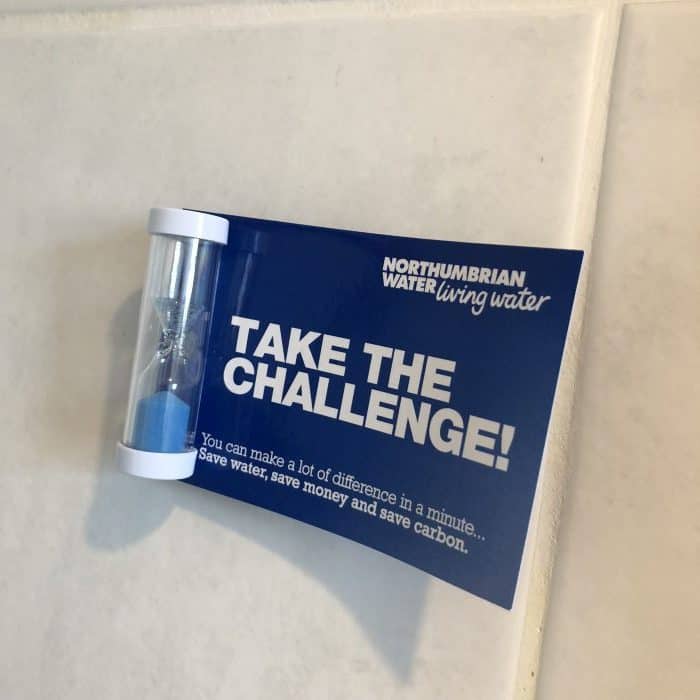
We have a little shower timer in our shower that we got free in a kit from Northumbrian Water when we were trying to reduce our vast water usage. It really helped us focus but now we know it’s also had the added benefit of helping us to reduce energy consumption in our house.
8. Think about your lights.
Obviously, turn the lights off when you’re not in a room and get used to sounding just like your Dad by asking everyone ‘do we live in Blackpool?’ every time they turn the lights on. My dad used to say this all the time and I think he was referring to Blackpool illuminations but whatever he meant, that’s always stuck in my head.
As well as focusing on switching off your lights, try and switch out any old style light bulbs and replace them with the more energy-efficient ones that are so readily available now. I can’t find a definitive answer anywhere on google as there’s so many different types of bulbs with different energy levels but it looks like you can save up to £9 a year per bulb if you do so that’s a big saving when you consider how many bulbs you have in your house.
9. Standby to save money!
This is one of the most common tips whenever people are discussing how to reduce energy consumption but it’s also the faffiest to me as it takes more effort than most of the rest. Turning your appliances off at the wall can save up to £55 a year based on old prices. Most can be switched off at the wall without interfering with their settings and programming so try and remember to have a sweep at the end of the day and switch off what you can.
10. Ditch the tumble drier.
One of the most expensive appliances to run is your tumble drier so don’t use that as your default option for drying clothes. Line dry where possible and maybe look into a heated air dryer which is around half the price of a tumble drier to run. Miss Frugal was given a Dri-Buddy as a housewarming present and wears by it drying her clothes overnight.
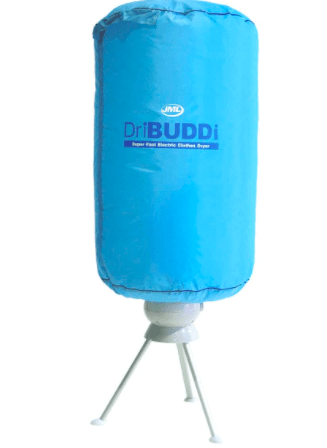
It also saves her on ironing as you hang the clothes up on hangers before hanging them on the Dri-Buddy so when they’re dry, you just pop them straight into your wardrobe.
(Aff link – Dri Buddy)
So there you have it, 10 ways to reduce energy consumption at home right now so you’re in the best space possible for the price increase that are heading our way!
Don’t miss out on future posts like this – receive updates directly to your inbox by email by adding your email address here and hitting subscribe. You can also follow me on Twitter or BlogLovin and I’d love to see you over on my Facebook page and on Instagram. If you’re interested, you can find out more about me here and while I’ve got your attention, if you’re wondering why some of my posts lately are a little bit less frugal then have a read of this post.
Do your future self a favour – Pin ‘Reduce energy consumption and beat the price hike’ for later:
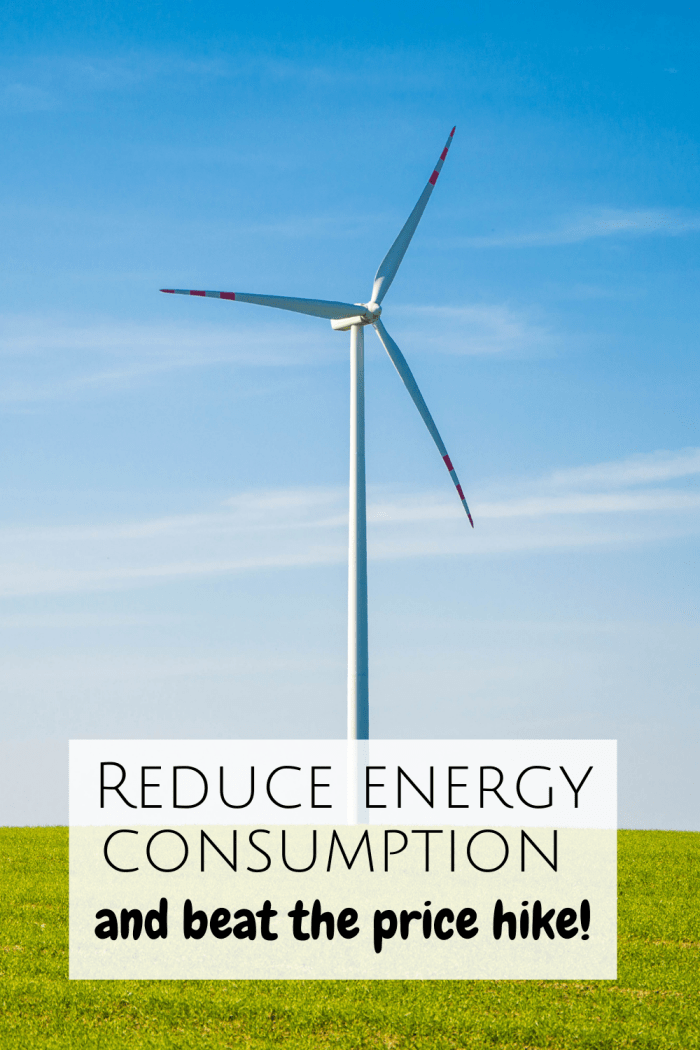



 Logging you in...
Logging you in... Loading IntenseDebate Comments...
Loading IntenseDebate Comments...
